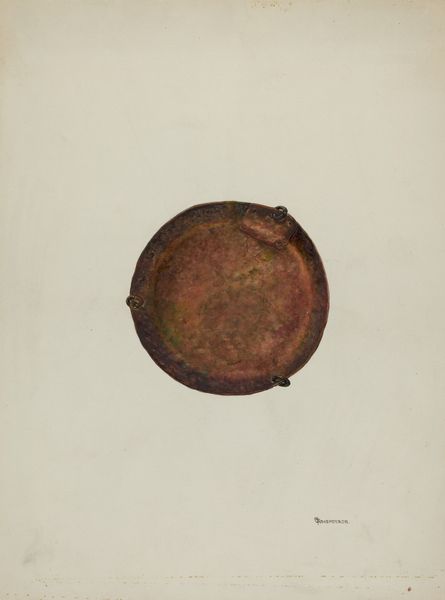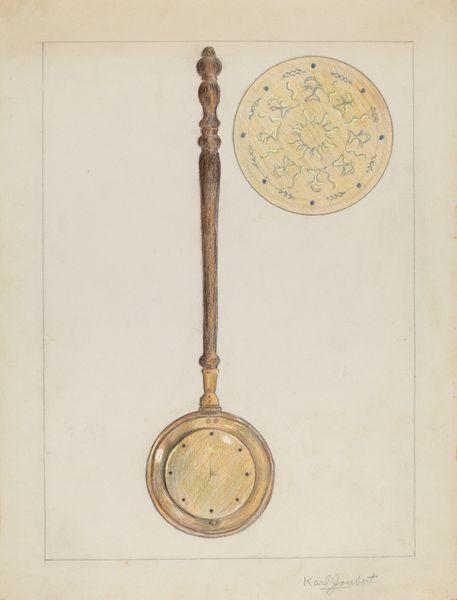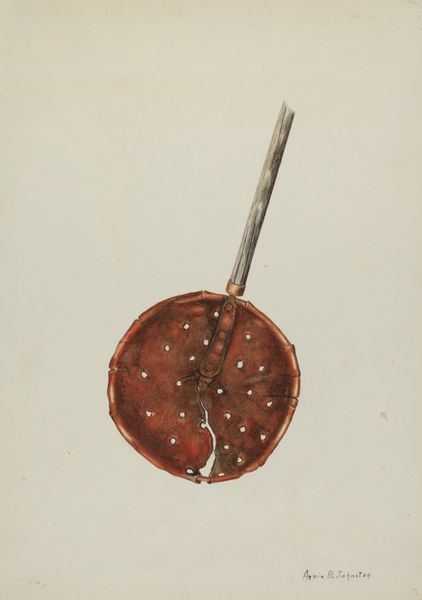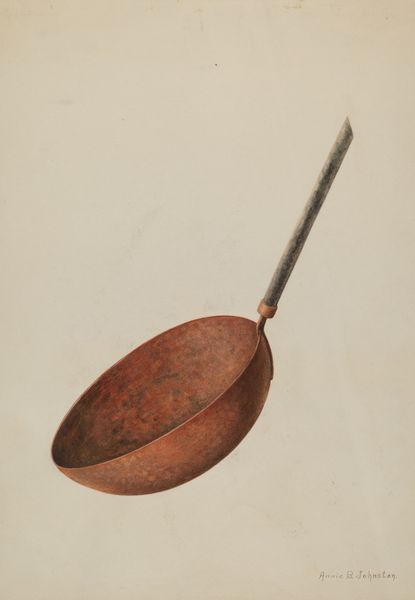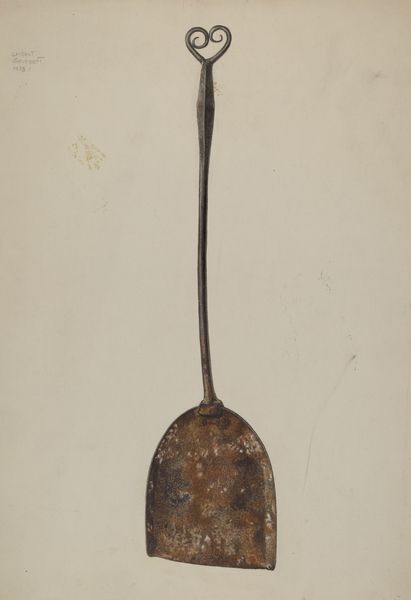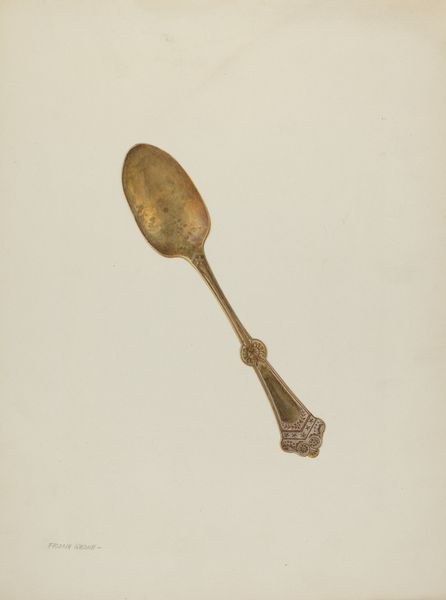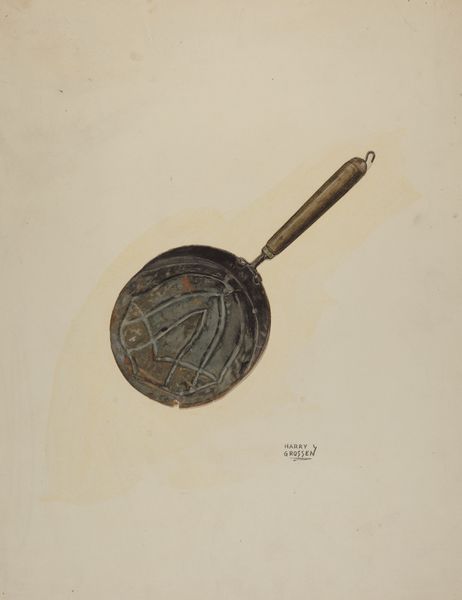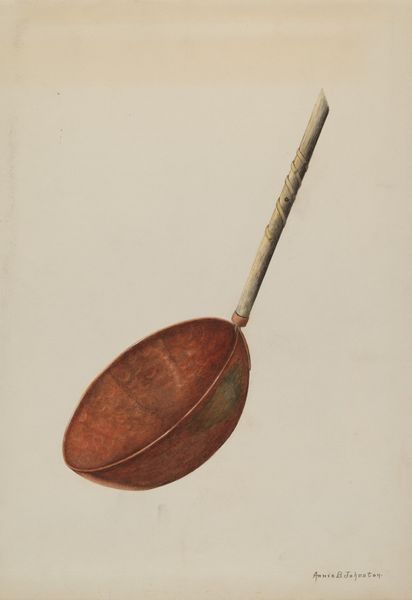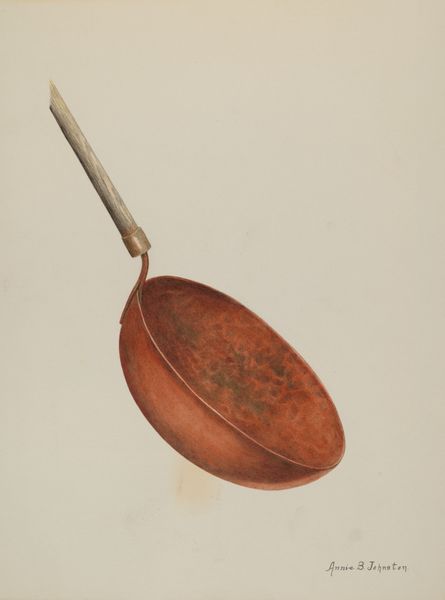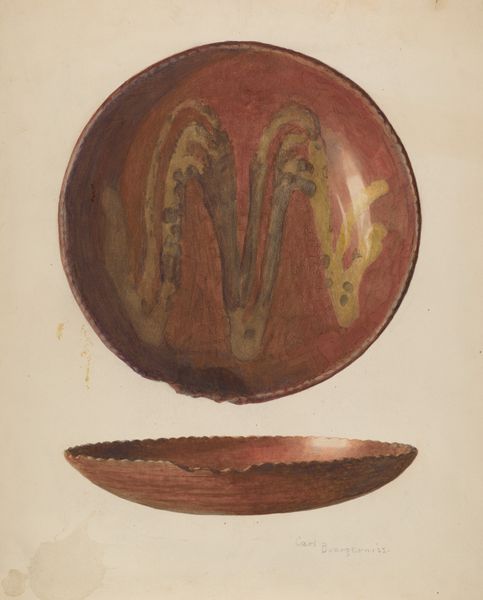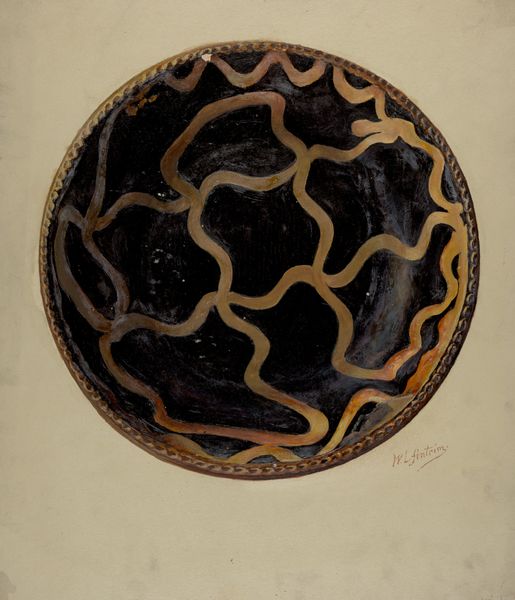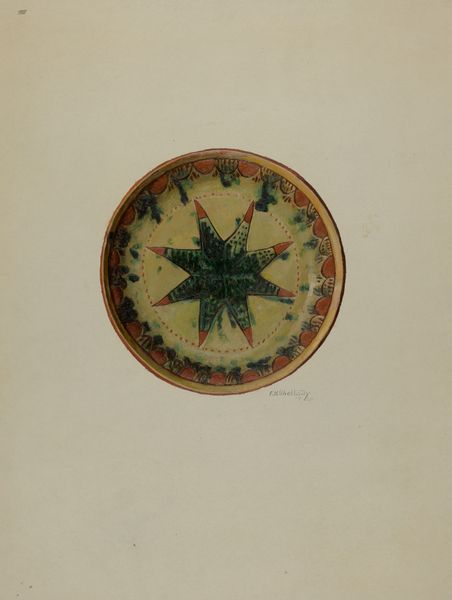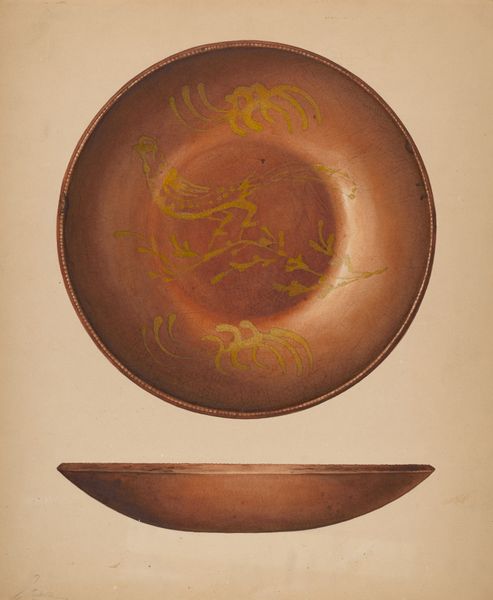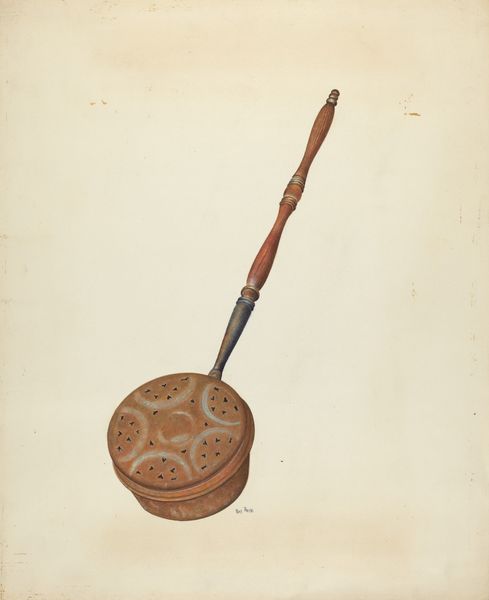
drawing, painting, watercolor
#
drawing
#
painting
#
charcoal drawing
#
watercolor
#
coloured pencil
#
watercolour illustration
#
academic-art
#
decorative-art
#
realism
Dimensions: overall: 34.7 x 24.8 cm (13 11/16 x 9 3/4 in.) Original IAD Object: 13 1/2" in diameter
Copyright: National Gallery of Art: CC0 1.0
Curator: Welcome. Today, we're looking at Annie B. Johnston's "Brass Sugar Skimmer," created around 1938. It is composed using watercolor, drawing and painting on a blank canvas. Editor: The skimmer has such a utilitarian, yet dignified presence. The composition, focusing so directly on a single domestic tool, highlights its design. There is something deeply satisfying in the balance and geometry. Curator: It’s important to remember that Johnston, despite some artistic training, would be identified today as a folk artist and chronicler. Her careful rendering elevates the everyday object. Think of this in the context of 1930's rural America, particularly within communities invested in material memory. This painting and its attention to detail could very well document techniques of craftsmanship and homemaking. Editor: The texture she achieves, though, it’s not just documentation, is it? I see a carefully considered range of tones within what is ostensibly "brass". There’s wear, tarnish, subtle imperfections making the brass almost come alive. She truly renders light as well as documenting a sugar skimmer. The visual depth she gets is outstanding! Curator: True. It transcends mere replication. Yet it is impossible to disconnect the work from its broader cultural moment of the dustbowl and the Depression era, one that necessitated a reckoning of tradition versus survival. And the work seems rooted in those sorts of themes. The object has historical and personal use; we must note that during this period the role of folk-art objects was critical to community identity, one to be memorialized or revived during tumultuous eras. Editor: Yes, but looking past the intent of preserving tradition, one sees an object distilled into pure form. The circle of the skimmer, offset by the strong line of the handle - it’s deceptively simple but brilliantly achieved. Curator: We might look at this artwork in our contemporary moment. It begs consideration of function, class and labor and might be one attempt at rendering objects with love and labor which are themes of today’s concerns with ethics and aesthetics. Editor: I agree. Considering how objects, humble in appearance, can reveal far greater visual intricacies once placed under attentive artistic regard. It really elevates and asks of us better, deeper ways of looking, doesn't it?
Comments
No comments
Be the first to comment and join the conversation on the ultimate creative platform.
